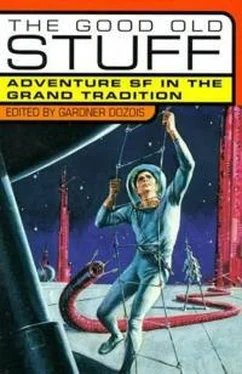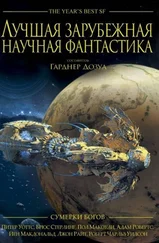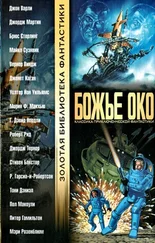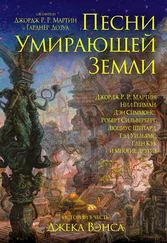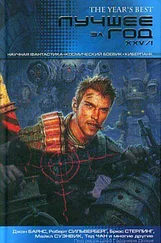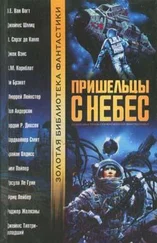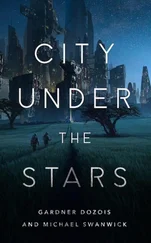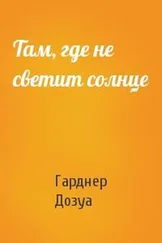Гарднер Дозуа - The Good Old Stuff
Здесь есть возможность читать онлайн «Гарднер Дозуа - The Good Old Stuff» весь текст электронной книги совершенно бесплатно (целиком полную версию без сокращений). В некоторых случаях можно слушать аудио, скачать через торрент в формате fb2 и присутствует краткое содержание. Год выпуска: 1998, ISBN: 1998, Издательство: St. Martin's Griffin, Жанр: Фантастика и фэнтези, на английском языке. Описание произведения, (предисловие) а так же отзывы посетителей доступны на портале библиотеки ЛибКат.
- Название:The Good Old Stuff
- Автор:
- Издательство:St. Martin's Griffin
- Жанр:
- Год:1998
- ISBN:0-312-19275-4
- Рейтинг книги:3 / 5. Голосов: 1
-
Избранное:Добавить в избранное
- Отзывы:
-
Ваша оценка:
- 60
- 1
- 2
- 3
- 4
- 5
The Good Old Stuff: краткое содержание, описание и аннотация
Предлагаем к чтению аннотацию, описание, краткое содержание или предисловие (зависит от того, что написал сам автор книги «The Good Old Stuff»). Если вы не нашли необходимую информацию о книге — напишите в комментариях, мы постараемся отыскать её.
The Good Old Stuff — читать онлайн бесплатно полную книгу (весь текст) целиком
Ниже представлен текст книги, разбитый по страницам. Система сохранения места последней прочитанной страницы, позволяет с удобством читать онлайн бесплатно книгу «The Good Old Stuff», без необходимости каждый раз заново искать на чём Вы остановились. Поставьте закладку, и сможете в любой момент перейти на страницу, на которой закончили чтение.
Интервал:
Закладка:
The Viagens Interplanetarias stories were assembled in the landmark collection The Continent Makers and Other Tales of the Viagens (long out of print, alas, but it can be found in many libraries). The Viagens or “Krishna” novels, some of them recently reissued, include The Hand of Zei, The Tower of Zanid, The Queen of Zamba, The Virgin of Zesh, The Prisoner of Zhamanak , and The Hostage of Zir . The single best of these novels, in my opinion, is The Hand of Zei , which makes a good entry-point into the senes, and which is still often findable in secondhand bookstores. DeCamp has continued to produce an occasional “Krishna” novel well into the ‘90s, the most recent of which are The Bones of Zora, The Stones of Nomuru , and The Swords of Zinjahan , all written in collaboration with his wife, Catherine Crook de Camp.
DeCamp’s other books include The Glory That Was, The Great Fetish , and The Reluctant King ; with Fletcher Pratt, in addition to the “Harold Shea” books, The Carnelian Cube, The Land of Unreason , and the collection Tales from Gavagan’s Bar ; with Catherine Crook de Camp, in addition to their collaborative “Krishna” novels, The Incorporated Knight and The Pixilated Peeress ; de Camp has also written a number of “Conan” novels in posthumous collaboration with the late Robert E. Howard. He has also written a long sequence of critically-acclaimed historical novels, including The Bronze God of Rhodes, An Elephant for Aristotle, The Dragon of the Ishtar Gate , and The Arrows of Hercules , as well as a number of nonfiction books on scientific and technical topics, literary biographies such as his painstaking examination of the life of H. P. Lovecraft, Lovecraft: A Biography , and Dark Valley Destiny: The Life of Robert E. Howard , and critical/biographical studies of fantasy and fantasy writers such as Literary Swordsmen and Sorcerers. As editor, his anthologies include Swords & Sorcery, The Spell of Seven, The Fantastic Swordsmen , and Warlocks and Warriors .
His short fiction has been collected in The Best of L. Sprague de Camp , A Gun for Dinosaur, The Purple Pterodactyls , and Rivers in Time .
DeCamp has won the Grandmaster Nebula Award, and the Gandalf or Grandmaster of Fantasy Award, as well as the prestigious Life Achievement Award given by the World Fantasy Convention. In 1997, he won a Hugo Award for his autobiography, Time and Change . He and his wife live in Texas.
Adrian Frome regained consciousness to the sound of harsh Dzlieri consonants. When he tried to move, he found he was tied to a tree by creepers, and that the Vishnuvan centaurs were cavorting around him, fingering weapons and gloating.
“I think,” said one, “that if we skinned him carefully and rolled him in salt ...”
Another said: “Let us rather open his belly and draw forth his guts little by little. Flaying is too uncertain; Earthmen often die before one is half done.”
Frome saw that his fellow-surveyors had indeed gone, leaving nothing but two dead zebras (out of the six they had started out with) and some smashed apparatus. His head ached abominably. Quinlan must have conked him from behind while Hayataka was unconscious, and then packed up and shoved off, taking his wounded chief but leaving Frome.
The Dzlieri yelled at one another until one said: “A pox on your fancy slow deaths! Let us stand off and shoot him, thus ridding ourselves of him and bettering our aim at once. Archers first. What say you?”
The last proposal carried. They spread out as far as the dense vegetation allowed.
The Dzlieri were not literally centaurs in the sense of looking like handsome Greek statues. If you imagine the front half of a gorilla mounted on the body of a tapir you will have a rough idea of their looks. They had large mobile ears, a caricature of a human face covered with red fur, four-fingered hands, and a tufted tail. Still, the fact that they were equipped with two arms and four legs apiece made people who found the native name hard call them centaurs, though the sight of them would have scare d Pheidias or Praxiteles out of his wits.
“Ready?” said the archery enthusiast. “Aim low, for his head will make a fine addition to our collection if you spoil it not.”
“Wait,” said another. “I have a better thought. One of their missionaries told me a Terran legend of a man compelled by his chief to shoot a fruit from the head of his son. Let us therefore ...”
“No! For then you will surely spoil his head?” And the whole mob was yelling again.
Lord, thought Frome, how they talk! He tested his bonds, finding that someone had done a good job of tying him up. Although badly frightened, he pulled himself together and put on a firm front: “I say, what are you chaps up to?”
They paid him no heed until the William Tell party carried the day and one of them, with a trader’s stolen rifle slung over his shoulder, approached with a fruit the size of a small pumpkin.
Frome asked: “Does that gun of yours shoot?”
“Yes,” said the Dzlieri. “I have bullets that fit, too!”
Frome doubted this, but said: “Why not make a real sporting event of it? Each of us put a fruit on our heads and the other try to shoot it off?.”
The Dzlieri gave the gargling sound that passed for laughter. “So you can shoot us, eh? How stupid think you we are?”
Frome, thinking it more tactful not to say, persisted with the earnestness of desperation: “Really, you know, it’ll only make trouble if you kill me, whereas if you let me go ...”
“Trouble we fear not,” roared the fruit-bearer, balancing the fruit on Frome’s head. “Think you we should let go such a fine head? Never have we seen an Earthman with yellow hair on head and face.”
Frome cursed the coloration that he had always been rather proud of hitherto, and tried to compose more arguments. It was hard to think in the midst of this deafening racket.
The pseudo-pumpkin fell off with a thump. The Dzlieri howled, and he who had placed it came back and belted Frome with a full-armed slap across the face. “That will teach you to move your head!” Then he tied it fast with a creeper that went over the fruit and under Frome’s chin.
Three Dzlieri had been told off to loose the first flight.
“Now look here, friends,” said Frome, “you know what the Earthmen can do if they—” T-twunk-t The bowstrings snapped; the arrows came on with a sharp whistle. Frome heard a couple hit. The pumpkin jerked, and he became aware of a sharp pain in his left ear. Something sticky dripped onto his bare shoulder.
The Dzlieri shouted. “Etsnoten wins the first round? “Was that not clever, to nail his ear to the tree?”
“Line up for the next flight!”
“Boy!” Hooves drummed and more Dzlieri burst into view. “What is this?” asked one in a crested brass helmet.
They explained, all jabbering at once.
“So,” said the helmeted one, whom the others addressed as Mishinatven.
(Frome realized that this must be the insurgent chief who had seceded from old Kamatobden’s rule. There had been rumors of war ...)
“The other Earthman knocked him witless, bound him, and left him for us, eh? After slaying our fellows there in the brush?” He pointed to the bodies of the two Dzlieri that had fallen to the machine-gun in the earlier skirmish.
Mishinatven then addressed Frome in the Brazilo-Portuguese of the spaceways, but very brokenly: “Who—you? What—name?”
“I speak Dzlieri,” said Frome. “I’m Frome, one of the survey-party from Bembom. Your folk attacked us without provocation this morning as we were breaking camp, and wounded our chief.”
Читать дальшеИнтервал:
Закладка:
Похожие книги на «The Good Old Stuff»
Представляем Вашему вниманию похожие книги на «The Good Old Stuff» списком для выбора. Мы отобрали схожую по названию и смыслу литературу в надежде предоставить читателям больше вариантов отыскать новые, интересные, ещё непрочитанные произведения.
Обсуждение, отзывы о книге «The Good Old Stuff» и просто собственные мнения читателей. Оставьте ваши комментарии, напишите, что Вы думаете о произведении, его смысле или главных героях. Укажите что конкретно понравилось, а что нет, и почему Вы так считаете.
